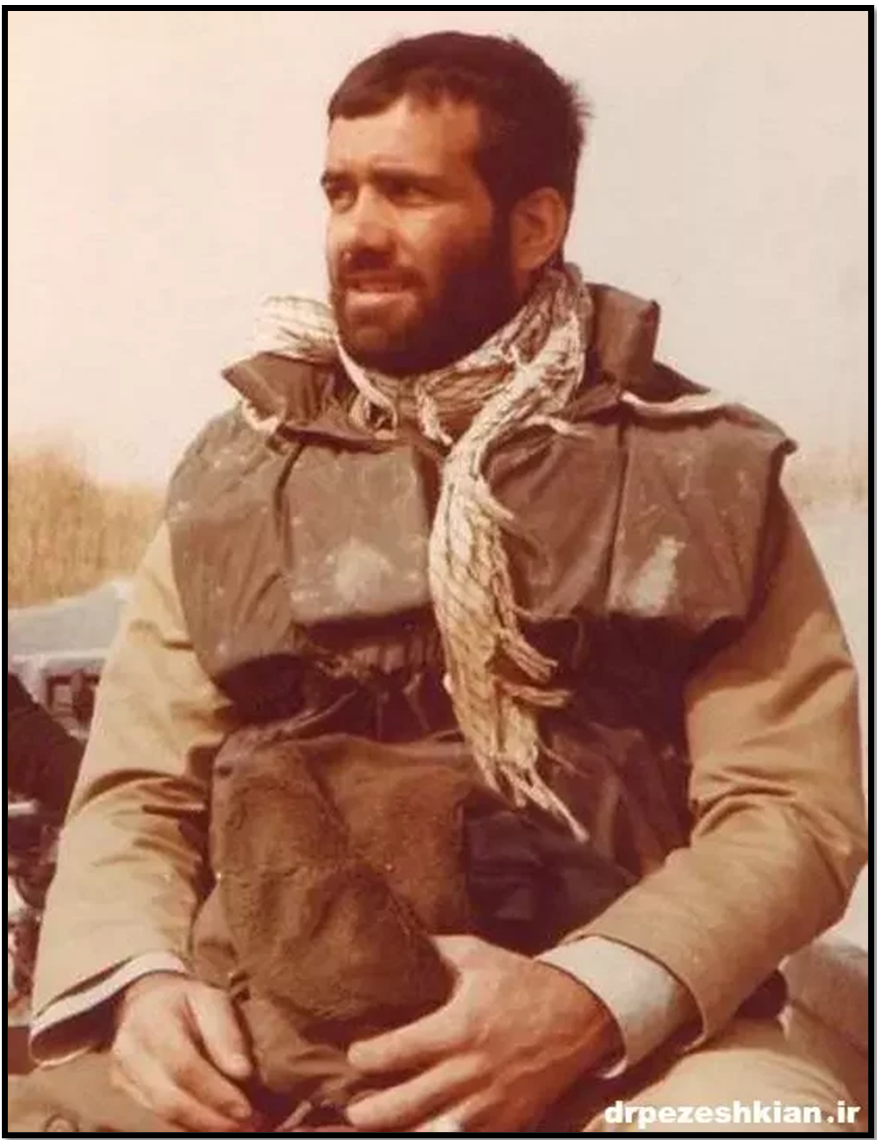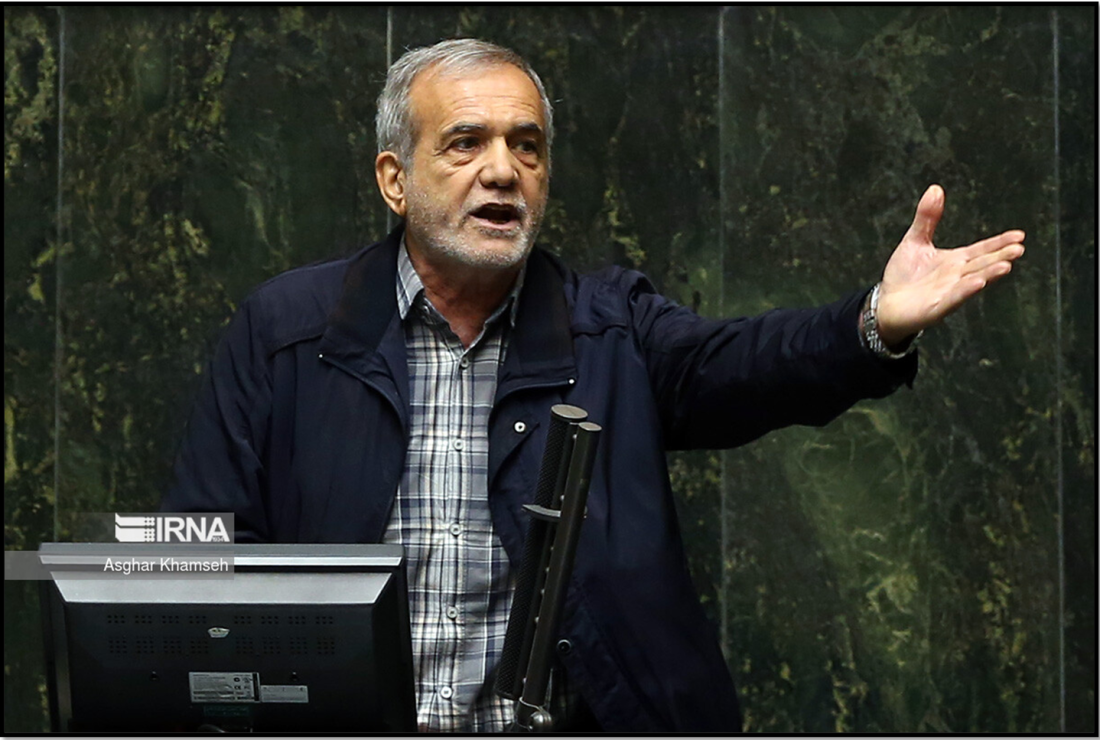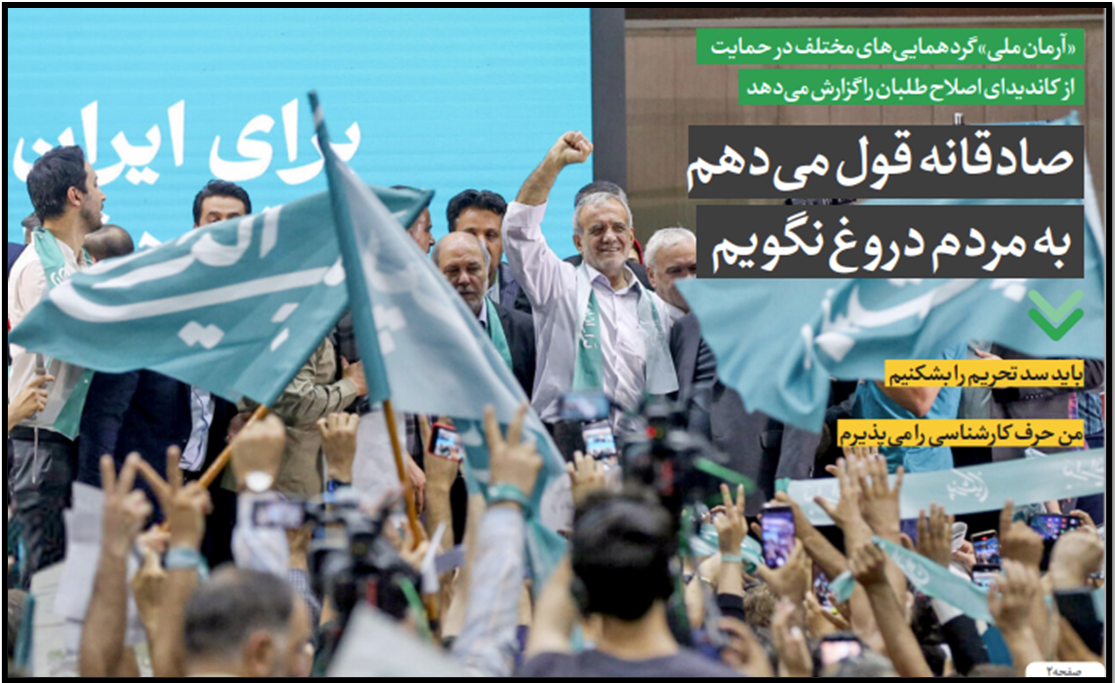Masoud Pezeshkian, a reformist politician and a cardiac surgeon, won Iran’s snap presidential election on July 5, 2024. He was born in 1954 to a religious family in the northwestern city of Mahabad in West Azerbaijan province. He graduated from Urmia Agricultural Technical High School in the provincial capital. In 1973, he began his military service and served in Zabol in southeastern Sistan and Baluchistan province. He completed his service in 1975 and then earned a diploma in experimental sciences. Pezeshkian started studying at Tabriz University of Medical Sciences in 1976. He organized Quran classes while studying and helped organize students to participate in nationwide demonstrations on Feb. 11, 1979 that led to the downfall of the monarchy.

During the 1980-1988 war with Iraq, Pezeshkian dispatched medical teams to the frontlines and treated the wounded. In 1985, he completed his coursework on general medicine and then taught physiology. He later earned a degree in general surgery from Tabriz University of Medical Sciences and then a specialist degree in heart surgery from Iran University of Medical Sciences in 1993. He worked for and later headed Shahid Madani hospital in Tabriz.
In 1994, his wife and a daughter were killed in a car accident. Pezeshkian never remarried and raised his other daughter and two sons alone. Also in 1994, Pezeshkian was appointed president of Tabriz University of Medical Sciences and held the position for some five years.
Pezeshkian served as deputy health minister during the first term of President Mohammad Khatami, a reformist, from 1997 to 2001. He then served as health minister during Khatami’s second term from 2001 to 2005. During his tenure, he expanded access to health insurance for nearly 25 million people in rural areas and nearly doubled the ministry’s budget through working with lawmakers.
Pezeshkian did not serve in the government of Mahmoud Ahmadinejad, a hardliner, who was president from 2005 to 2013. Pezeshkian decided to run for Parliament in response to the Ahmadinejad government’s exorbitant spending. “These conditions affected me because I believed that we were not created to make money and spend it like that.”
In 2006, Pezeshkian won a seat in Parliament representing the Tabriz, Osku, and Azarshahr district of East Azerbaijan province. He was reelected four consecutive times. In 2009, millions turned out over the course of six months to protest an allegedly fraudulent vote that reelected President Ahmadinejad. In a speech in Parliament, Pezeshkian criticized the bloody crackdown by security forces. “Do not kill people like a wild animal,” he said, quoting Ali, the first Shiite imam. “When you can, don't intervene sharply, don't hit, don't strike.”
He served as first deputy speaker of Parliament from 2016 to 2020 and headed the Azeri Caucus. Azeris, concentrated in the northwest, are the second-largest ethnic group in Iran after Persians. Pezeshkian, born to an Azeri father and Kurdish mother, has gained supporters among both ethnic groups.

Pezeshkian lauded the Revolutionary Guards for downing a U.S. drone in June 2019. The move “delivered a strong punch in the mouth of the Americans and proved to them that our country will not surrender.” In November 2019, a surprise overnight announcement of a hike in gas prices triggered protests in more than 100 cities. Security forces reportedly killed more than 300 demonstrators. Pezeshkian held the government responsible. “We should have done better.”
Pezeshkian registered for the 2021 presidential election but was not cleared by the Guardian Council. He criticized the barring of candidates from elections and lack of competition.
In 2022, Pezeshkian condemned the death of Mahsa Amini, a 22-year old woman who died in custody after being detained for improper hijab. “It is unacceptable that in the Islamic Republic, a girl is arrested for her hijab and then her body is handed to her family,” he tweeted in 2022. Nationwide protests broke out and calls for greater personal freedoms quickly morphed into cries for the downfall of the regime and “Death to the dictator,” a reference to Supreme Leader Ayatollah Ali Khamenei. Pezeshkian warned that “insulting the supreme leader… will create nothing except long-lasting anger and hatred in the society.”
The Guardian Council initially barred Pezeshkian, along with nearly all prominent reformists, from running for Parliament in the March 2024 election. Pezeshkian said that he had been disqualified due to protesting Amini’s death and the use of force against women. But the council reversed course and allowed him to stand for reelection. Pezeshkian attributed the change to a good word from the supreme leader.

Pezeshkian did not have national name recognition until after he was cleared to run for president in Iran’s snap 2024 presidential election following the death of President Ebrahim Raisi, a hardliner, in a helicopter crash. Major reformist political parties and figures, including former President Khatami, endorsed Pezeshkian. During the campaign, his views on domestic and foreign policy contrasted with those of the five other candidates, all conservatives of different stripes. Pezeshkian called for engagement with the West and greater personal freedoms. The dark horse took first place in the June 28 vote and defeated Saeed Jalili, a hardliner and former nuclear negotiator, in the runoff on July 5.
Related Material:
Pezeshkian: Implications of Win
